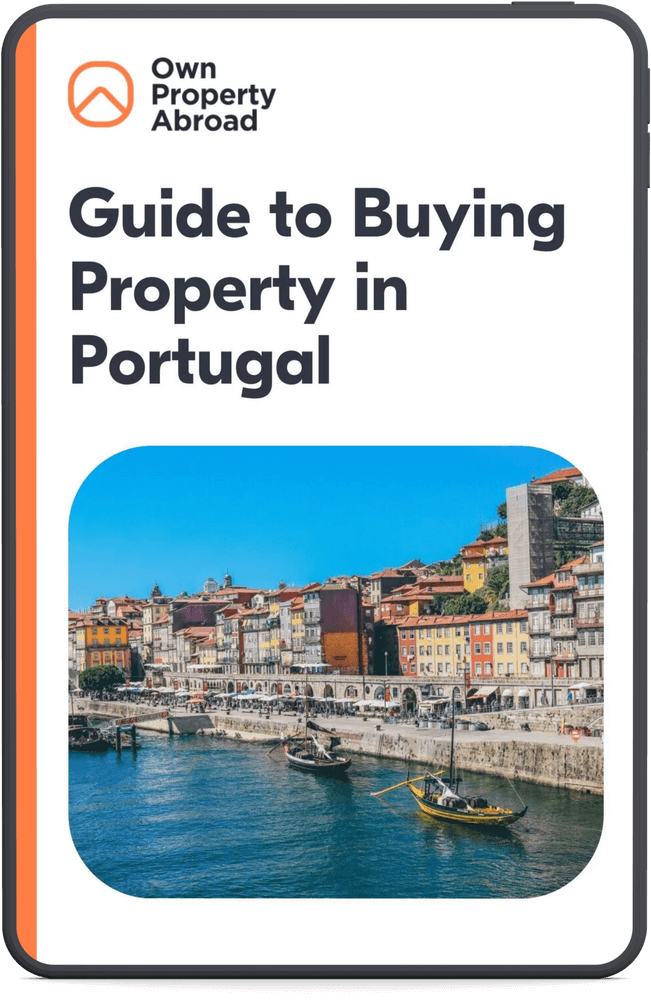1. Language and communication style
The main language spoken in Portugal is Portuguese. Many people, mostly young, can also speak English, although most older people cannot. Because of that, people who want to buy property in Portugal are recommended to learn the Portuguese language. Some important words and phrases are:
- Good morning/afternoon/night – Bom dia/Boa tarde/Boa noite
- Nice to meet you – Prazer
- How are you? – Como está?
- See you soon – Até breve
- Goodbye – Adeus
- Thank you – Obrigad(a/o)
- Please – Por favor
- Excuse me – Com licença
- You’re welcome – De nada
- How much does it cost? – Quanto custa?
Portuguese people are direct in their communication. Simultaneously, the people are warm and friendly, and politeness and respect are highly valued. Most of the time, they will tell you the truth nicely. The Portuguese people tend to talk more formally in public and less when they are with relatives. It is normal to see people speaking fast and loudly: this is part of the Portuguese character used by people to show how they feel. Don’t be surprised, because they mostly don’t mean it in an angry or displeasure way.
Valuable insights and practical advice, distilled from years of expertise and real-world experience.


The Portuguese greet each other with a handshake while looking each other in the eye or cheek kisses (starting with the right) when they’ve already met. These greetings are also used upon leaving.
The Portuguese people don’t make many hand movements. Making too many hand movements or showing too much body language can make a bad impression. As in many cultures, pointing with your finger in Portugal is rude, so avoid doing this.
2. Family in Portugal
Family is the most important part of society in Portugal. Family loyalty is more important than loyalty to other social groups, including business contacts. In actuality, prioritizing the needs of the family is highly regarded. The acceptance of nepotism, which denotes that choosing people one knows and trusts is crucial, reflects this point of view. Nepotism is a beneficial practice because it emphasizes the value of familial ties and the trust that comes with them.
3. Portuguese dress code
The Portuguese people tend to dress modestly and highly value quality and elegance. It is important to dress respectfully in Portugal. This is especially true when you visit formal places, such as a government office or a church. Wearing casual attire, such as beachwear, flip-flops, or barefoot, in public spaces is inappropriate and can make one seem less credible.
4. Personal space in Portugal culture
An arm’s length is enough personal space to hold during conversations. Portuguese people like to touch each other when talking with close friends and family. However, this can be inappropriate in business or other formal situations. It is usual for people to hug and kiss in public, and women often hold hands with men as they walk down the street. Showing affection in public is normal, but only within certain limits.
5. Giving gifts in Portugal
Bring the hostess flowers, good chocolate, or candy if you are invited to a Portuguese home for dinner. Only bring wine if you know what they like. Also, keep track of how many and the type of flowers you get; thirteen is a bad number, and do not give your host red flowers, as you only give this color to your love or partner.
When you get a gift from a Portuguese person, remember that opening the gift right away is polite. Gifts aren’t usually given out at business meetings, but small gifts may be appropriate when negotiations end well.
6. Dining etiquette
Portuguese people are very punctual. If someone invites you to dinner, make sure not to be more than 15 minutes late. When you go to a party or a bigger social event, it’s okay to be up to an hour late.
It isn’t nice to talk about business in a social setting. Also, stay standing until you are told to sit down; they may show you where to sit. European table habits say to eat with the fork in your left hand and the knife in your right. Wait to start eating until the host says bom apetite.
7. Religion
More than 94% of the Portuguese population follows the Roman Catholic religion. Portuguese history is deeply connected to Christianity; you will see many churches throughout the country. Ensure you always respect the Catholic and Christian religions, as showing disrespect may cause great offense.

8. Important don’ts when you’re in Portugal
It is important to avoid comparing Portugal to Spain or assuming similarities between the two countries. Despite their proximity, their cultures are distinct. Be cautious when discussing sensitive topics such as colonial wars, politics, and religion. Allow your Portuguese counterpart to lead these discussions, and be respectful when sharing your thoughts. Avoid boasting or exaggerating your accomplishments, status, or wealth, as modesty is valued in Portuguese culture.
9. Business meeting etiquette in Portugal
Business meetings in Portugal follow specific etiquette guidelines that are important to understand. Firstly, scheduling appointments in advance is essential, preferably one to two weeks beforehand. Always reconfirm the meeting a few days before the scheduled date. It’s worth noting that August is not an ideal month to plan meetings as many Portuguese individuals take their vacations during this month. It is also best to avoid scheduling appointments during the week between Christmas and New Year.
Punctuality is highly valued in Portugal, so arrive on time. Interestingly, being five minutes late is considered on time in some circles. However, it’s crucial to display respect by being punctual. If you find yourself waiting for someone, it’s essential to remain patient and not show irritation. Punctuality tends to vary between regions. People from northern Portugal generally tend to be more punctual than those in the south.
Before diving into business discussions, expect a fair amount of informal conversation to get to know each other. Building a rapport is seen as an important part of the process. Agendas in meetings are meant to serve as starting points for discussions rather than strict schedules. Keep this in mind when organizing your meeting materials.
It is advisable not to remove your jacket unless your business associates do so. This allows you to align with the appropriate dress code in the professional setting. Maintaining eye contact when speaking is considered respectful and shows engagement.
It’s important to understand that decisions are typically not made during meetings in Portugal. Instead, meetings serve as a platform for discussion and information sharing.

10. Business relations and communication
When doing business in Portugal, building relationships and effective communication is crucial. The Portuguese value trust and prefer to work with people they feel comfortable with. It is recommended to have a mutual contact introduce you initially. Developing relationships takes time and effort.
Face-to-face meetings are preferred over written or phone communication, which is impersonal. Remember that relationships are built with individuals, not just companies. If there are changes in the representatives or negotiating team during ongoing negotiations, the relationship-building process may need to start again.
Respect is essential in business interactions, and avoiding any actions that could embarrass your colleagues is important. Communication in Portugal is formal, following strict rules of protocol. If your Portuguese colleagues have questions during a presentation, they will wait until you finish speaking before seeking clarification.
Portuguese individuals tend only to volunteer information if asked, especially if remaining silent is in their best interest. While they are not emotive speakers and do not commonly use hand gestures, they may be more expressive when greeting friends. If you typically use hand gestures, consider moderating your behavior to avoid being perceived as overly demonstrative.
Don’t be alarmed if your Portuguese colleagues don’t always follow through on promises, as they have a more relaxed attitude towards time and deadlines than other cultures. Lastly, direct criticism is not appreciated in Portuguese culture, even if you believe it to be justified. It is better to provide feedback or address concerns in a diplomatic and tactful manner.
11. Negotiating in Portugal
Understand Portuguese business culture when negotiating. Portuguese take time to develop business relationships because they value character. Allow Portuguese colleagues to start business discussions and don’t rush relationship-building. Hierarchy plays a significant role in Portuguese business culture. The highest-ranking person typically makes decisions.
Portuguese individuals are known for their thoroughness and attention to detail. They prefer long-term business relationships but sometimes focus on short-term gains. Don’t appear impatient—business moves slowly in Portugal.
Ensure you have printed materials available in both English and Portuguese to cater to language preferences. Avoid using high-pressure sales tactics, as the Portuguese find aggressive behavior offensive. Contracts hold significant value in Portugal, and they are respected. Ensuring all agreements and terms are documented and understood by all parties involved is advisable.
Buy property in Portugal with Own Property Abroad
Do you want to buy property in Portugal? Own Property Abroad can assist you and ensure a seamless and hassle-free property journey, whether selling or buying real estate in Portugal. Thanks to our knowledge and experience in the local market, we can help with legal requirements, finding suitable properties, negotiating the best deals, and conducting due diligence.
With our expert team, you won’t have to navigate the complexities of the Portuguese real estate market alone. For further information on how we can assist you, kindly drop your details below or email us at [email protected]. Let’s start working on your property success story today!
Valuable insights and practical advice, distilled from years of expertise and real-world experience.


Frequently Asked Questions (FAQs)
What are some norms in Portugal?
Norms in Portugal encompass strong family ties, respect for hierarchy, and a relaxed attitude towards time. Portuguese culture values punctuality, modesty, and maintaining formal communication. Greeting with a handshake and conversing politely before returning to business is customary. Avoid comparing Portugal to Spain, and be cautious when discussing sensitive topics like politics and religion.
What is a typical Portuguese personality?
A typical Portuguese personality is warm, friendly, and hospitable. Portuguese people are known for their strong sense of community and family values. They appreciate leisurely enjoyment of life, savor good food and wine, and embrace cultural traditions. They tend to be modest and humble, valuing personal connections and prioritizing loyalty to family and friends.
What is the social culture of Portugal?
The social culture of Portugal revolves around close-knit communities and a focus on relationships. Family plays a central role, forming the foundation of social structure. Loyalty to family comes before other social relationships, including business. Portuguese society respects age and position, with deference given to those in senior positions. Socializing often involves gathering for meals, celebrations, and festivals, where people engage in lively conversations and enjoy music and dance.





